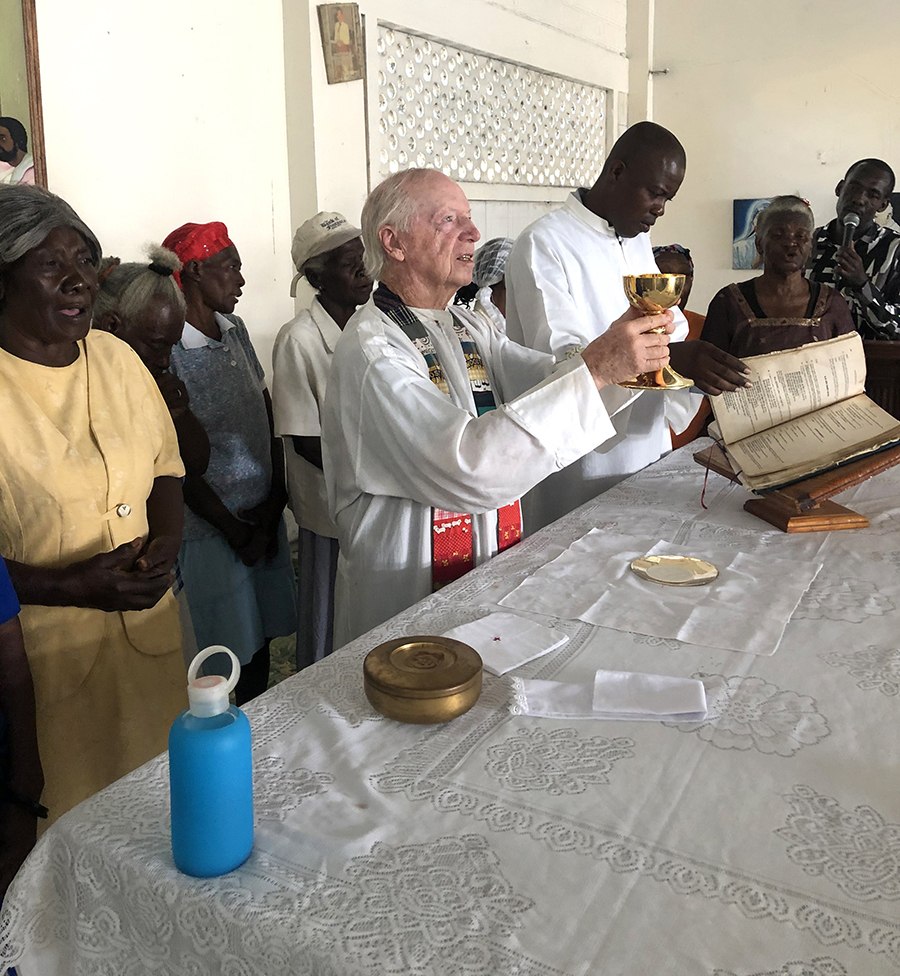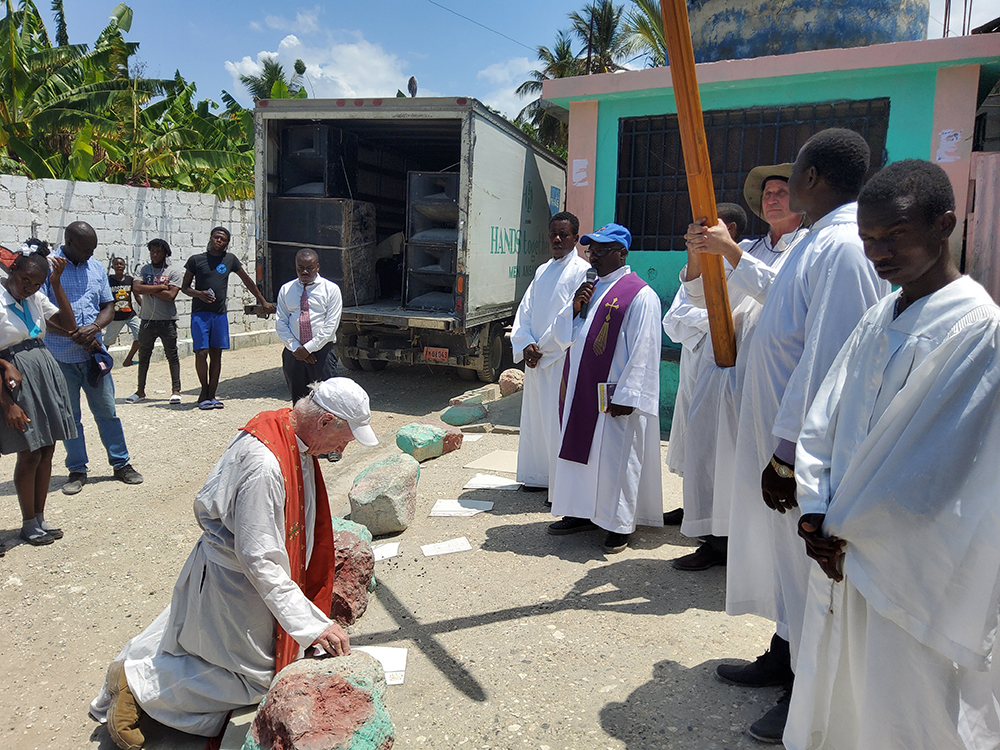
By Gina Christian
(OSV News) — A Philadelphia-born priest has negotiated a truce among several gang leaders in Haiti, inviting them to “work hard to end violence” in the troubled nation.
Father Thomas Hagan, an Oblate of St. Francis de Sales, told OSV News from his office in Haiti’s capital, Port-au-Prince, that the agreement “could be very fragile” but marked a step in quelling that nation’s systemic kidnappings, rapes, killings and widespread civil unrest.
Four gang leaders signed the July 2023 truce, a digital copy of which Father Hagan provided to OSV News. In the text, the signatories “promise our loving God … to bring peace to all people … to bring security to all people … to join hands with all people who are dedicated to making peace.”
Since 1997, Father Hagan has lived in Port-au-Prince, having some 10 years earlier founded the nonprofit Hands Together, which provides educational, pastoral and humanitarian development to Haiti’s largest and poorest slum, Cité Soleil.
With seven campuses, the organization — one of Cité Soleil’s largest employers — features a high school, a free clinic and a senior outreach and housing program. Hands Together also operates in Haiti’s rural areas through water wells and agricultural programs, while aiding the poorest schools, clinics and parishes in the northern Diocese of Gonaïves.
Father Hagan said that along with working to rebuild health and housing supports, his ministry focuses on the essential task of restoring social bonds — ties that have been severely undermined by multiple, sustained crises such as political instability, natural disasters, foreign intervention and international debt.
In July 2021, Haitian President Jovenel Moïse was assassinated; in April 2023, the head of the United Nations office in Haiti warned the nation was sliding into “a catastrophic spiral of violence.”
This past August, some 5,000 residents of the capital’s Carrefour-Feuilles district fled their homes as gangs overtook the area. Weeks earlier, U.N. Secretary-General Antonio Guterres had urged that a multinational police force be deployed in Haiti to restore order.
Yet Father Hagan, who began his priestly ministry in the U.S. by serving some of Philadelphia’s poorest, remains undaunted in his patient, persistent work of helping Haitians — a majority of whom are Catholic — realize their country’s full potential, the dream of their ancestors who threw off slavery in a revolution that defeated France in 1804 and led to an independent republic.
To negotiate the truce, Father Hagan coordinated an online chat with gang leaders through the WhatsApp messaging platform, he said.
“I met with each one, and then would go immediately to the other ones,” he said, adding that “if you tell one something, you have to tell the other leaders exactly what you told them.”
Now, the gang leaders are “using WhatsApp to communicate with one another,” said Father Hagan.
He laid the groundwork for dialogue among the gang leaders through a simple opening message, he said.
“Every time an opportunity (would arise), I would say personally … that they are loved by God, that they have value,” Father Hagan said.

Amid the gang violence — which has claimed members of his own staff over the years, including one who was killed while reading at Mass — Father Hagan has discerned a deep desire among Haitians for a better future.
“One of the (gang) leaders said, ‘I would just like to be able to talk … about these dreams to begin to get jobs,'” said Father Hagan, adding that “Haiti could become very wealthy” through its agriculture, if proper training, infrastructure, investment and governance were in place.
“Every one of our schools now has an agricultural component, even (those) in the cities,” he said.
Faith among those he serves remains strong, he said.
“When I celebrate baptisms, I’ve got about 600 people,” said Father Hagan. “It’s all day long, even (amid) fighting.”
Just prior to the truce, the priest was held at gunpoint.
“One of the gang leaders said, ‘You know, when I burn your car or shoot you, what do you say about that?'” said Father Hagan. “I said, ‘I still love you.'”
That incident was only one among many he has experienced in his ministry, he admitted.
“I mean, today could be the day,” Father Hagan said. “Every day, when I say Mass … I look at the tabernacle and think, ‘Maybe today’s my day.’ And then you don’t worry about it.”
The Eucharist provides the strength to face the challenge of death — and the greater one of finding Jesus Christ in others, he said.
“I think one of the things is that as Catholics, we don’t really understand our Eucharist, because it’s meant to be lived. And that means we shatter all categories, and see every human being as a brother,” said Father Hagan. “The breaking of the bread … is a universal sign of acceptance. If you look at another person’s state, you’re accepting them and that’s the way we have to look at people. We have to leave that church and just apply it to the outside world.”
